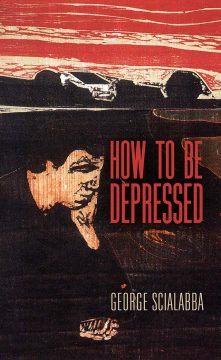 Gerald Russello in LA Review of Books:
Gerald Russello in LA Review of Books:
The physical or mental causes of depression still evade definitive analysis. But Scialabba argues that economic conditions can certainly exacerbate existing depression or trigger someone into a depressive episode. In one of its guises, depression makes people feel worthless, in both the cultural and economic senses. Unemployment can move someone from “the merely miserable” into actual, clinical depression.
The recent coronavirus pandemic that brought unemployment claims to record numbers has thrown this vulnerability into sharp relief. Worries over mental health have skyrocketed; the Washington Post reported that the pandemic has caused a “historic” rise in mental health issues. So, in this sense, depression is indeed an economic issue; as Scialabba wryly notes, one’s susceptibility to depression, like the skills and talents one may have at birth, are apportioned largely at random.
Suffering exists, and will exist. Money, however, and our ability to use it to ameliorate that suffering, is not random and can be directed where it is needed. Better mental health services, or a wider social safety net, might have ameliorative effects on people balanced on the edge. The suffering of many caused by depression, diagnosed or otherwise, “would also have been lessened by crumbs of that wealth”; transferred to the “already rich” over the last four decades. Scialabba’s own life is testament to that; although he remained generally consistently employed, he has never been financially secure, a concern that has only grown over his years of treatment.
More here.
